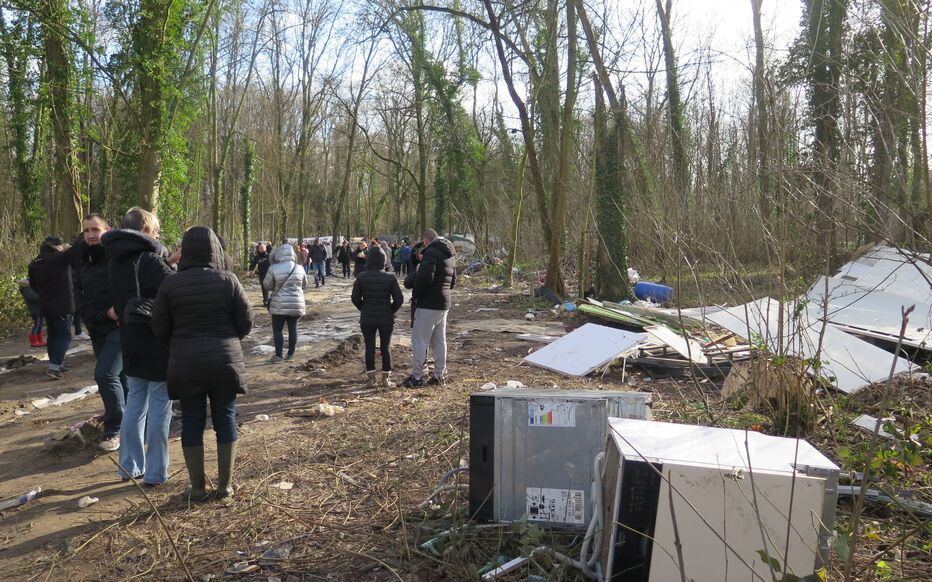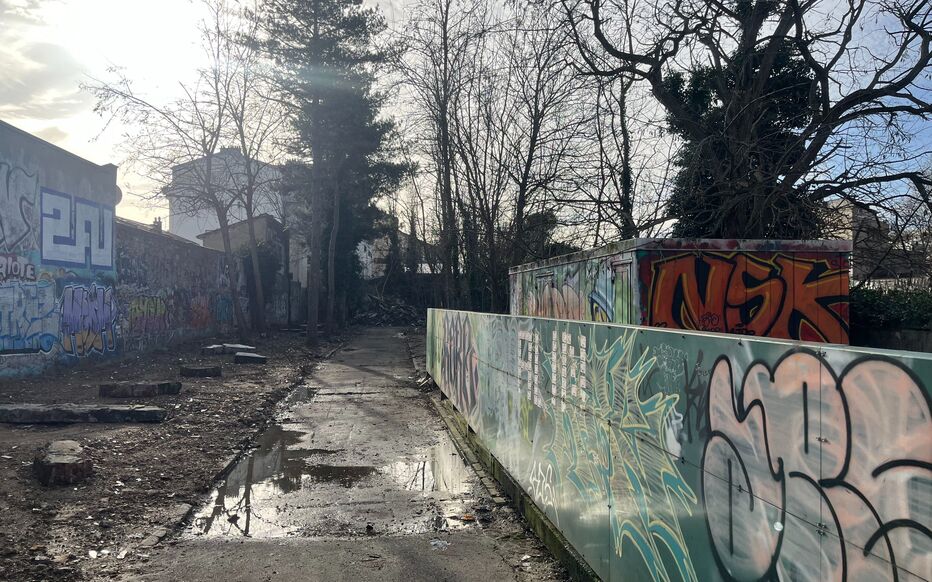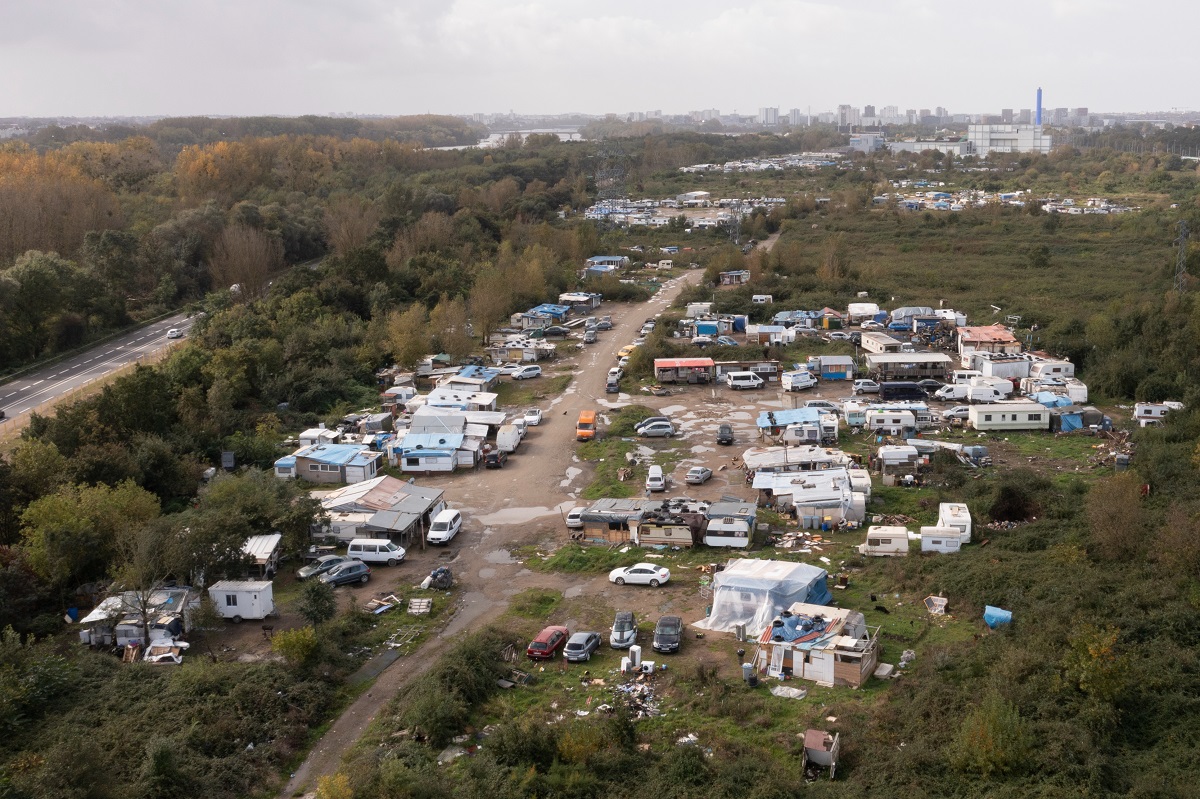El Mallass (2013) calls for a paradigm shift in the Rroma policy in France. As a reason for his plea, he takes a controversial headline of the newspaper “Valeurs actuelles” of the 22 August which titled an article with the words “Roms, l’overdose.” [Rroma, the overdosis]. El Mallass sees a glaring blindness amongst the public on the history of the Rroma: Their persecutions under the Vichy regime and the Nazis, as well as the government practices against Rroma in many European countries, which lasted for centuries. El Mallas urges French politicians and the French State to on to take a lead role on a new Rroma policy aimed at their speedy and successful integration: “En somme, c’est à l’État de favoriser l’intégration de la communauté Roms en créant des conditions humanitaires dignes ainsi que l’accès aux droits, leur permettant in fine de sortir de l’illégalité et des no man’s land que sont ces camps insalubres, où l’insécurité quotidienne vient s’ajouter à la violence intracommunautaire qu’aucune règle de droit ne peut régir sans présence de l’autorité publique.” [As summary, the State should further the Rroma integration by creating worthy humanitarian conditions as well as guaranteeing access to rights, permitting them at long last to get out of illegality and of the no man’s land, what these unhealthy camps are, were daily insecurity adds itself to inter-community violence which no rule of law can deal with without the presence of the public authority.]
Jamet (2013) of Boulevard Voltaire writes a mocking criticism on the latest controversy in the French press. He asks the provocative question as to whether the Rroma should not be considered to be a chance for France. In an ironic language, he pokes fun at the clichés about Rroma and sees them as producers of jobs, the countries with Rroma populations should on the contrary be grateful that they have them: “Combien d’agents communaux du nettoyage, de gendarmes, de policiers, de vigiles, d’agents de sécurité, de serruriers, de plombiers, seraient voués au chômage si les Roms n’existaient pas ! Y a-t-on songé ? Une discrimination séculaire empêche depuis plus de mille ans la communauté rom de se sédentariser, de s’instruire, de s’intégrer aux différent pays qui ne connaissent et donc n’apprécient pas à sa juste valeur la chance qu’ils ont d’avoir été choisis par eux pour lieux de résidence ambulante.“[How many communal agents for cleaning, gendarmes, policemen, vigils, security agents, locksmiths, plumbers would be without work if Rroma did not exist! Did one think about that? A secular discrimination prevents the Rroma community since more than thousand years become sedentary, to educate itself, to integrate in the different countries which do not know and thus do not appreciate fully the chance that they were chosen by them as their mobile residency.]
Following the closure of an illegal Rroma camp in Strasbourg, Moga (2013) discusses the perspectives of Romanian Rroma in France and societal attitudes towards them. She spoke with several families living in the camp, and draws a picture that oscillates between hope and despair. So many of the young Rroma want to go to school and learn French but the registration of the children often fails due to the lack of language skills of the parents. To this, one needs to add the difficult access to the labour market and a vicious circle of social exclusion, a circle that only a few manage to break. Moga criticises the closure of the camp as a hindrance to a successful and above all long-term integration of Rroma.
Polloni (2013) reports a creative idea of the organization Perou of Ris-Orangis: Perou designed forty CVs of prominent Rroma residents in Ris-Orangis who cannot find work. She wants to draw attention to the untapped pool of labour that lies fallow and could actually be a significant economic force for the French economy.
- El Mallass, Tarik (2013) “Valeurs Actuelles” sur les Roms : au lieu de les stigmatiser, pensons leur intégration. In: Le Plus – Le nouvel observateur online vom 22.8.2013 http://leplus.nouvelobs.com/contribution/924188-valeurs-actuelles-sur-les-roms-au-lieu-de-les-stigmatiser-pensons-leur-integration.html
- Jamet, Dominique (2013) Les Roms, une chance pour la France? In: Boulevard Voltaire online vom 23.8.2013 http://www.bvoltaire.fr/dominiquejamet/les-roms-une-chance-pour-la-france,33901
- Moga, Nathalie (2013) Rencontre avec les Roms de Saint-Gall : «Ici, nous avons trouvé la liberté» In: Rue89 Strasbourg online vom 23.8.2013 http://www.rue89strasbourg.com/index.php/2013/08/23/societe/rencontre-roms-de-saint-gall/
- Polloni, Camille (2013) Quarante CV de Roms mis en ligne pour attirer les employeurs. In: : Rue89 Strasbourg online vom 22.8.2013 http://www.rue89.com/2013/08/22/quarante-cv-roms-mis-ligne-attirer-les-employeurs-245118







